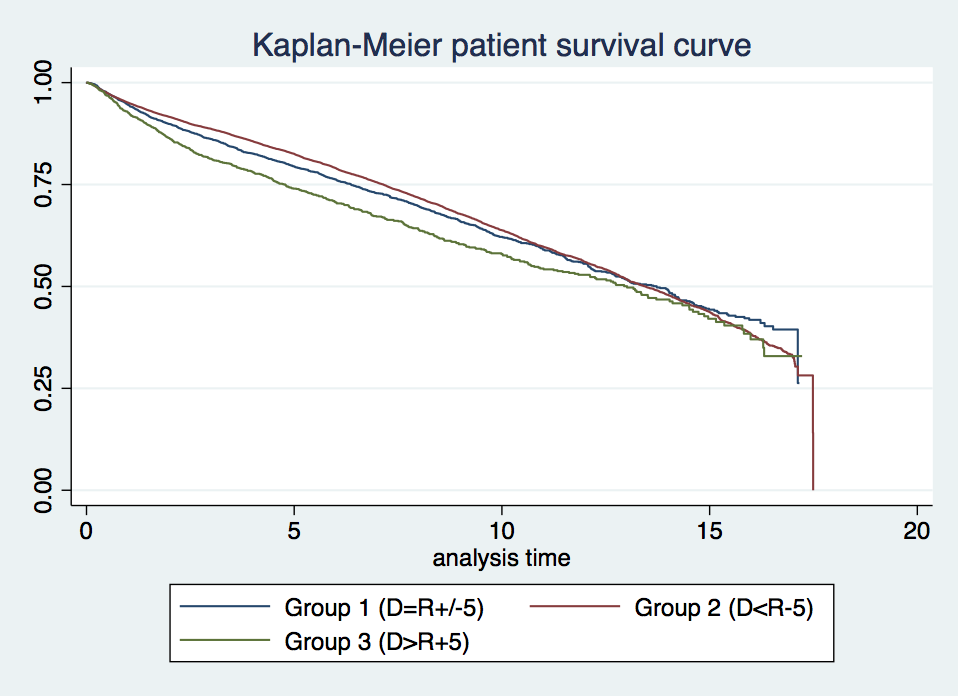Age Mismatch between Donor and Recipient in Heart Transplant and its Effect on Mortality
1Internal Medicine, University of Vermont, Burlington, VT, 2Division of General Internal Medicine Research, University of Vermont, Burlington, VT
Meeting: 2020 American Transplant Congress
Abstract number: C-267
Keywords: Age factors, Heart transplant patients, Mortality
Session Information
Session Name: Poster Session C: Heart and VADs: All Topics
Session Type: Poster Session
Date: Saturday, May 30, 2020
Session Time: 3:15pm-4:00pm
 Presentation Time: 3:30pm-4:00pm
Presentation Time: 3:30pm-4:00pm
Location: Virtual
*Purpose: Increasing donor to recipient age difference has been shown to reduce survival in pediatric heart transplant population. However, the effect of age mismatch in adult population is not as clearly described and age mismatch in the adult population is not considered in the decision making to accept an organ. We therefore, undertook this database study to determine the incidence of age mismatch and its effect on mortality in adult heart transplant patients.
*Methods: We analyzed 2000-2017 UNOS heart transplant data. Adult patients receiving their first isolated heart transplant were included in the study. Donor to Recipient age differences were divided into three groups: donor age within 5 years of recipient age (Group 1), donors >5 yrs younger than recipient (group 2), and donors >5 yrs older than recipient (Group 3). Cox regression was used to assess the effect of age mismatch on post heart transplant mortality and to adjust for the effects of independent variables.
*Results: 28,411 patients met the inclusion criteria. 3,688 patients received an organ from donor who was within ±5 yrs of their age (Group 1). 23,010 patients were in group 2 and 1,713 patients were in Group 3. Compared to group 1, the adjusted hazard ratio (aHR) for mortality for group 2 and group 3 were 0.91 (Confidence interval 0.83-0.99 with p value of 0.044) and 1.33 (1.18-1.49, p value <0.001) respectively.
*Conclusions: In this UNOS database analysis of adult patients who received their first heart transplant, we found that donor to recipient age difference of > 5 yrs was associated with higher long term mortality. Other significant predictors of mortality were listing status, recipient age, black race, diabetes, ischemia time, pre transplant creatinine, calcineurin inhibitor (CNI) use, post transplant ejection fraction and new onset diabetes after transplantation (NODAT). These findings suggesting that older donor age leads to worse long term survival are not surprising. However, due to the current organ shortage, effect of age mismatch on long term survival should be considered on the background knowledge of high mortality on the waiting list.
To cite this abstract in AMA style:
Kumar A, Bonell L, Prikis M. Age Mismatch between Donor and Recipient in Heart Transplant and its Effect on Mortality [abstract]. Am J Transplant. 2020; 20 (suppl 3). https://atcmeetingabstracts.com/abstract/age-mismatch-between-donor-and-recipient-in-heart-transplant-and-its-effect-on-mortality/. Accessed March 3, 2026.« Back to 2020 American Transplant Congress

